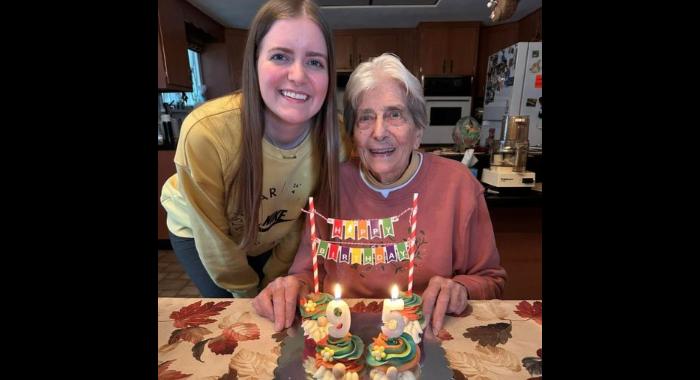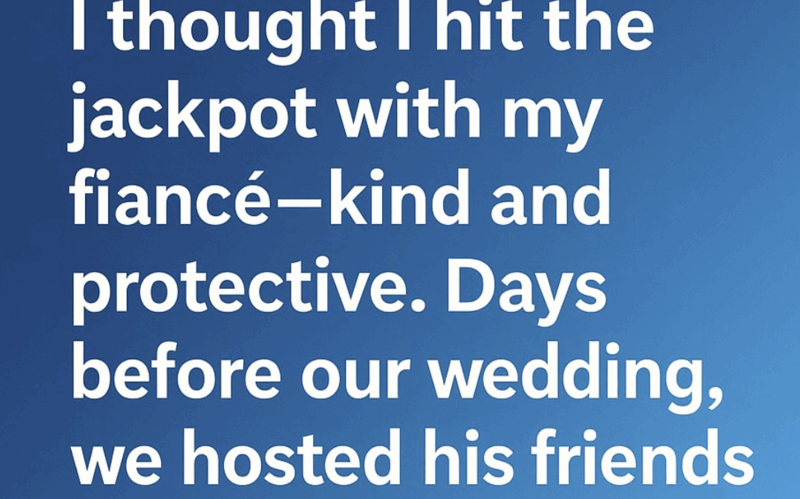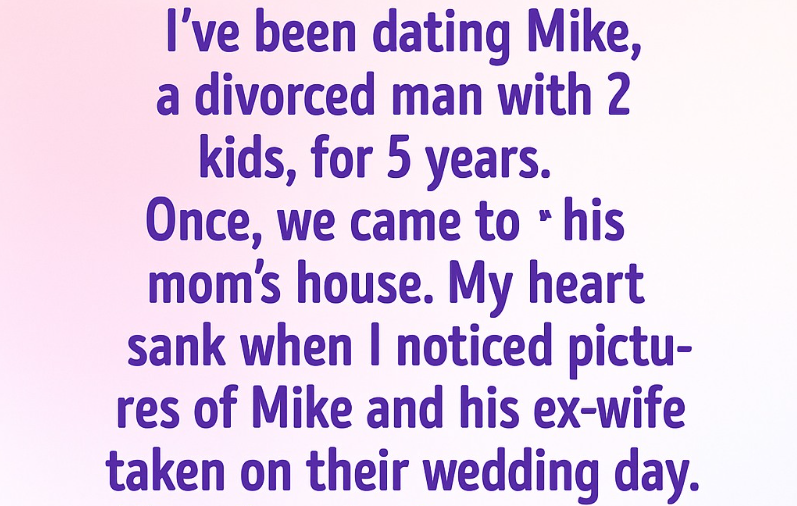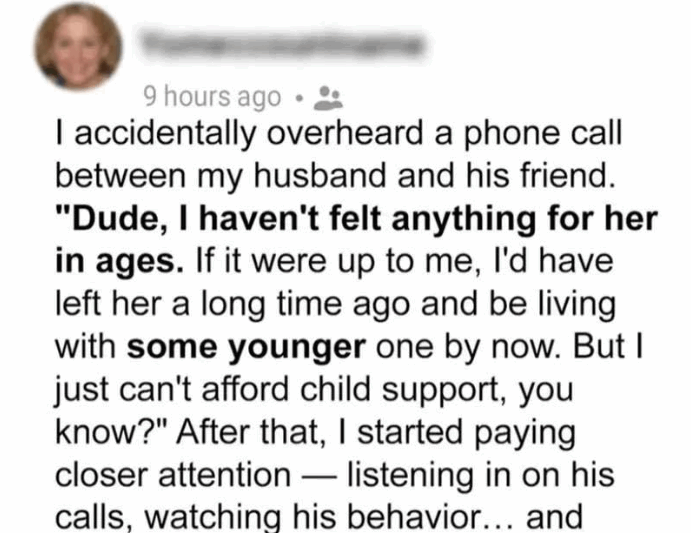We expected a simple birthday celebration.
Rainbow cupcakes lined the table, toasts filled the air, and his familiar, cheesy jokes echoed through the room.
But when the candles were extinguished and the “Happy Birthday” banner began to droop, he cleared his throat and announced:
“Tonight, I’m the one giving gifts.”
From beneath the table, he retrieved a pile of cream-colored envelopes, distributing one to each of us—every niece, nephew, grandchild, and cousin.
Some envelopes felt heavy. Others were light.
No one knew what to make of it—until the first ones were opened.
Inside?
For some, there were crisp hundred-dollar bills. For others, there were treasures of memory—sepia photographs, letters folded with care, or receipts from a distant past. The room buzzed with polite chuckles, puzzled looks, and quiet gasps. My cousin Adrian pulled out a check for five thousand dollars, his cheeks turning pink. Across the table, my sister Ana unfolded a letter, its cursive faded and trembling.
“What’s this supposed to be?” she asked, holding it up.
My uncle only smiled. “It’s not about the contents—it’s about what speaks to you.”
That’s when the tension sparked.
Adrian waved his check high. “Why does he get cash, and Ana gets some old letter?” he demanded. “How’s that supposed to add up?”
Ana’s face tightened. “Don’t say that. Maybe it means something.”
But Adrian wasn’t alone in his frustration. My cousin Mara found a faded map inside her envelope, while Daniel, the youngest among us, received a silver pocket watch that didn’t tick. Some envelopes held money—amounts varying without explanation.
The room turned into a whirlwind.
Voices grew louder. People exchanged glances, whispered comparisons, and sneaked off to the kitchen to open their envelopes in secret. What began as a cozy family gathering unraveled into a tangle of envy, doubt, and sharp-edged humor.
I sat there, clutching my unopened envelope, my fingers hesitating. My uncle caught my eye and gave a knowing wink. “Go ahead. It’s yours to discover.”
When I finally tore it open, I found something curious: a small key on a string, taped to a folded note. The note read:
“Some doors don’t look like doors at all. You’ll know when the moment comes.”
A key? To what? My uncle’s modest home held no secrets—no storage units, no hidden vaults, as far as I knew. I felt a mix of curiosity and unease.
Meanwhile, Adrian’s voice cut through the room. “This is ridiculous! Why give money to some and worthless trinkets to others?”
My uncle rose, steadying himself with his cane. His voice was steady, warm. “What I gave each of you fits you, even if you don’t see it now.”
No one bought it. Not at that moment.
The night ended in a haze of frustration. People left early. Adrian stopped speaking to Ana. My mother muttered about my uncle’s age clouding his judgment.
But in the weeks that followed, the gifts began to reveal their purpose.
Ana took her letter home and pored over it. It was from our grandfather, written during the war, meant for his future family. Its pages held stories of resilience, wisdom about love, and lessons on unity. Ana began reading it to her children at bedtime, and they clung to its words. She told me one night that the letter brought her a peace no money could match.
Mara studied her map and realized it pointed to a forgotten family plot by the river. After digging through old records, she learned the land was still ours. With some effort, she reclaimed it. Now, she’s building a garden and gathering spot for our family to share.
And Daniel, with his seemingly broken watch? Out of curiosity, he tinkered with it and found a hidden compartment. Inside was a tiny photograph of our grandmother as a young woman and a note: “To whoever finds this—time is precious, and family is what you carry.” At sixteen, Daniel began treating us all with a new kind of care.
Then there was Adrian. His five thousand dollars vanished quickly—spent on new gadgets, clothes, and nights out. But when the money ran dry, so did the friends he’d tried to impress. He was left frustrated, still feeling shortchanged.
As for me, the key stayed in my pocket, a quiet mystery. I asked my uncle about it once, but he only laughed. “You’ll know when the time’s right.”
One weekend, I visited him. His house carried the faint scent of old books and pipe smoke. He sat in his armchair, a worn copy of Marcus Aurelius in hand. I held up the key.
“I don’t get it,” I said. “It doesn’t fit anything—my apartment, my car, nothing.”
He smiled. “Checked the garage?”
“Your garage?” I asked, puzzled.
“Bottom shelf, behind the paint cans,” he said, his eyes twinkling.
I went to the garage and found it: a dusty wooden box tucked in a corner, covered in cobwebs. The key clicked perfectly.
Inside were journals, photographs, and a smaller metal box. That box, unlocked with the same key, held dozens of letters—some old, some new, each addressed to a family member. They were like snapshots of his heart, preserved for us.
At the bottom was an envelope with my name.
I opened it, hands shaking. A single page read:
“You’re always chasing something bigger—jobs, places, plans. But meaning lives in the quiet moments: the late-night talks, the shared stories, the way we lift each other. This box is yours to share when the family’s ready. Choose the moment well.”
My throat tightened. He was right—I’d always been restless, searching for more. But this box showed me that meaning was in our roots, our connections.
Weeks later, I invited the family back to my uncle’s house. Some hesitated, still stung from the birthday, but they came. I shared the box, read the letters aloud, and passed them around.
At first, the air was heavy—people were guarded, skeptical. But as the words settled, something changed. Mara wiped away tears. Ana held her kids close. Even Adrian, brooding in the corner, softened when I read a note: “Your worth isn’t in what you hold, but in what you give.”
We stayed up late, talking like we hadn’t in years. No arguments, no comparisons—just stories, laughter, and connection.
It felt like my uncle’s strange gift had done its work.
Months later, my uncle passed away quietly in his sleep. His will mentioned the envelopes again. They weren’t just gifts—they were mirrors, reflecting what we valued, what we’d hold onto, what we’d let go.
He wrote that the money went to those he thought might mistake wealth for purpose, giving them a chance to learn. Some called it harsh. I call it brilliant.
Adrian, humbled after his spending spree, asked to read the journals. I shared them. Soon after, he started volunteering at a shelter, helping kids with no family. “I think I get it now,” he told me one evening.
Our family has changed. We still bicker, of course, but we gather more now. Mara’s land hosts our barbecues and celebrations. Ana framed her war letter. Daniel wears the pocket watch like a talisman. And I keep the box safe, opening it when someone needs its wisdom.
The truth is clear now. My uncle’s envelopes didn’t divide us—they showed us who we were, what we needed to grow.
Sometimes, gifts aren’t about balance. They’re about guiding you forward, shaped by love that looks different for everyone.
That’s an inheritance worth more than any sum.
If this story resonates with you, share it with someone close. It might be the gift they didn’t know they needed.




